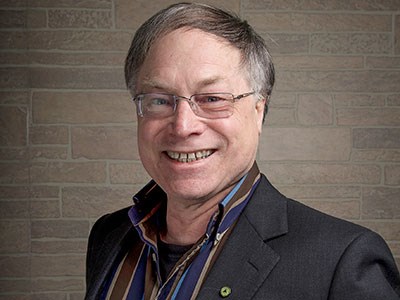Remember the game. Doug Ford is a good fairy and he has offered the North three wishes. For the first, I showed how to increase value-added from the forestry sector. For wish two, I suggested that the research and educational facilities that support our Northern industries should be located in the North. We have one wish left. Let’s ask to run our own schools.
A community has to understand itself to develop. Communities and nations have used their school systems to develop a sense of identity. The French teach French history and geography. The Germans teach German art and literature. Les Québécois have their own version of history. American students memorize the names of all the U.S. states and even the names of their presidents.
But Northerners don’t study Northern geography, or Northern history. The schoolbooks don’t showcase Northern poets or Northern musicians. The content of education in Northern Ontario is what southern Ontario wants it to be. The system does nothing to create a Northern community or to support a Northern culture. In fact, our education system seems to be designed to keep Northern Ontario divided.
And it is probably not an accident. Writing in 1971, Robert Stamp noted that while American schooling aimed to produce “good little Americans,” prominent Canadian educators focused on “inculcating loyalty to Britain and British institutions.” Upper Canada was then a colony of Britain, and Northern Ontario was becoming a colony of Upper Canada.
Adolphus Egerton Ryerson’s name is now associated with Ryerson University and the design of the Canadian Indian residential school system. As superintendent of schools for Upper Canada, Ryerson promoted the centralized and basically colonial education system we still live with.
Northern Ontario now has a population larger than the 400,000 in Ryerson’s Upper Canada. Our region is radically different from Ryerson’s southern agricultural society. We have far more Francophones and people of Aboriginal descent, and far fewer recent immigrants than the south now has, we have a different geology, biology and even climate, and an economy based on resource extraction instead of farming and manufacturing. Even Ryerson wouldn’t approve of a Northern Ontario curriculum so ill-fitted to the people and the economy.
If you were the minister of education for Northern Ontario, you would have two clear goals. You would want to prepare Northern kids to succeed anywhere they go. And you would want to give them the knowledge they need to contribute to the growth and development of Northern Ontario.
We clearly fail on this second goal. How many kids graduating in Northern Ontario know anything about native trees, let alone the forest industry? How many kids growing up in mining towns know anything about geology? How many know anything about the local poets and writers?
So let’s steal a trick that has already worked for Canada as a whole. In the 1960s, Canada discovered Canadian content and fed a growing sense that we Canadians had a culture and a community we could be proud of. A system had to be invented to recognize Canadian content. The MAPL (music, artist, performance and lyrics) system, created by Stan Klees (co-creator of the Juno Award), was adopted in 1971. The result was an explosion of Canadian talent competing internationally.
We could use something like the MAPL system to recognize Northern content and introduce it into our schools. Why shouldn’t biology be taught using Northern plants in books by Northern authors? Why not have students read Northern poetry and novels? Why shouldn’t science books be written in the North and describe Northern rivers, lakes, moose and fish? There is not enough Canadian content in our schools, but there is virtually no Northern Ontario content. As a Northerner, you basically don’t exist as far as your children’s education goes.
Northern content would be good for the Northern economy. The largest school board in the northeast spends $200 million a year. If only 2 per cent were spent on educational materials, it would instantly add $4 million to the local economy. Why buy books from outside of the region when we can channel that money through local writers and publishers to other Northern businesses?
Mr. Ford, we want schools run by Northerners, about Northerners and for Northerners.


